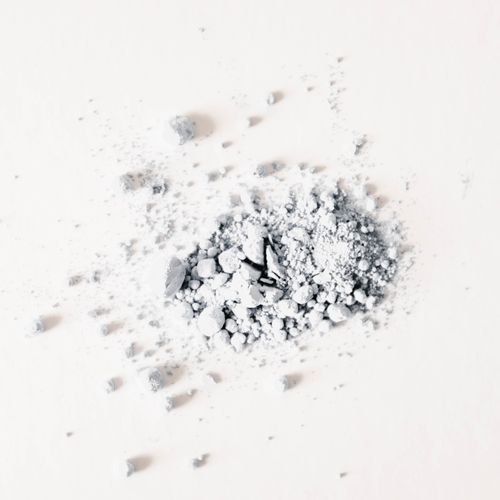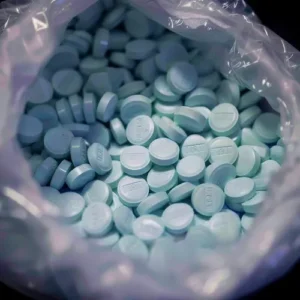A highly hallucinogenic narcotic, PCP is an illegal (but extremely common) street drug commonly referred to as angel dust, rocket fuel, and peace pills. When taken, PCP can cause vivid hallucinations that affect sight, hearing, and even sense of touch leaving the user experiencing events that are not real while distorting their sense of time and reality.
PCP can leave users with dangerous side effects ranging from body numbness to extreme depression and can be fatal at doses in amounts around 1mg/kg in adults (and smaller quantities for children). Because PCP disrupts the natural balance of chemicals within the human mind and body, mood swings are common and can quickly turn violent—PCP users often hurt themselves and others around them during their hallucinations.
History and Background of PCP
Phencyclidine was originally developed in the 1950s as an intravenous anaesthetic called Sernyl. However, due to the severe and prolonged disorientation and delirium experienced by patients after surgery, PCP was withdrawn from the market and restricted. Despite being labelled as having no medical use, PCP gained popularity as a recreational drug in the 1960s and was placed under government control in the UK in 1977.
Although illegal, PCP recipes and instructions for synthesis were widely available, leading to widespread illicit manufacturing and distribution. Today, most of the PCP on the streets is illegally made in makeshift labs. Impurities and improper synthesis lead to variation in the potency and effects, making PCP consumption even more dangerous.
Mechanism of Action
PCP is classified as a dissociative hallucinogenic drug with anaesthetic properties. It works primarily as an NMDA receptor antagonist, blocking glutamate from binding to NMDA receptors. This leads to a disruption in the transmission of neural signals, causing dissociation from reality and visual and auditory hallucinations.
Additionally, PCP acts as a dopamine reuptake inhibitor, leading to increased dopamine levels and contributing to the detached, dreamlike mental state. It also has effects on opioid, nicotinic, and muscarinic receptors. The combined impact on multiple neurotransmitter systems leads to PCP’s mind-altering hallucinogenic properties.
Effects on the Brain and Body
The effects of PCP vary greatly depending on the dose. At low to moderate recreational doses, users experience euphoria, numbness, loss of coordination, and dissociative hallucinations. However, at high doses, PCP can cause more severe effects:
- Intense hallucinations – visual, auditory, and tactile
- Out of body experiences
- Severe disorientation
- Panic, agitation
- Dopamine-induced psychosis symptoms like delusions and paranoia
- Analgesia and numbness leading to self-harm
- Seizures, coma, or death due to respiratory depression
Chronic PCP abuse can also lead to memory issues, speech impairment, depression, and weight loss. Some effects may persist for up to a year after stopping usage due to long-term retention of PCP in the body.
Treating PCP Addiction
Currently, there are no specific medications to treat PCP addiction or overdose. Care is aimed at controlling behavior and stabilising vitals. Sedatives like benzodiazepines may be used for agitation. Supportive psychosocial therapy focused on behavioural control is beneficial after detoxification.
Entering a comprehensive addiction treatment program can help manage withdrawal symptoms and psychological issues. Programs utilise counselling, cognitive behavioural therapy, peer support groups, medications, and other treatments to help individuals achieve sobriety from PCP. Ongoing aftercare and recovery groups are key to sustaining abstinence long-term.
What does PCP look like?
The most common occurrence of PCP is in its crystalline-powder state, appearing completely white in color. Because it is such a loose powder it can go unnoticed when sprinkled in small quantities which make it easy to lace on cannabis or within other pills such as ecstasy.
How is PCP taken?
Because PCP is naturally a powder, taking the drug can be done in many ways by users. The most common way is to smoke the powder by mixing it with cannabis and smoking it like a regular joint. In its powdered form, PCP can be snorted or directly swallowed. PCP powder is highly dissolvable in alcohol and water which make it easy to for injecting directly into the blood stream.
What are the short-term effects of PCP use?
When first taken, a rapid distortion of reality takes place. Time and space will no longer appear as it normally does, and the user’s senses will start to change. Hallucinations can occur within seconds if a large dose of PCP is taken; smaller doses could take as much as 30 minutes before any noticeable effects are present.
What are the long-term effects of PCP use?
As users continue to take PCP, the effect begins to diminish without adding more drugs into the body. As a result, the constant trauma the user suffers causes their body to start breaking down. Psychological systems are typically present first—agitation, aggressive behaviour, and violent mood swings—and physical signs begin to appear over the years; these include kidney failure, liver damage, and heart disease.
Because PCP is stored long-term in fat cells, even after usage has stopped, when the body breaks down fat (such as during exercise), small amounts of PCP can enter the bloodstream and result in horrible flashbacks and recurring nightmares.
What class of drug is PCP?
Similar to cocaine, PCP is a class A drug which means if a user is caught in possession of the drug they will face a 7 year prison sentence and a very large fine; if a distributor or supplier of PCP is caught, they will face life imprisonment.
PCP Drug Test Kits
When it comes to UK drug testing requirements , PCP is normally detected by one of the larger urine or saliva drug test kits. For the most reliable screening for PCP we would always recommend one of our larger drug test cups. Our 13 panel drug test cup screens for PCP, as does the 16 panel drug test cup, and our largest test, the 18 panel drug test cup.
Photo by Zoom Testing
Zoom Testing is a leading UK drug testing company and a supplier of Drug Test Kits.
This post was originally published in January 2013 and has been updated since.





